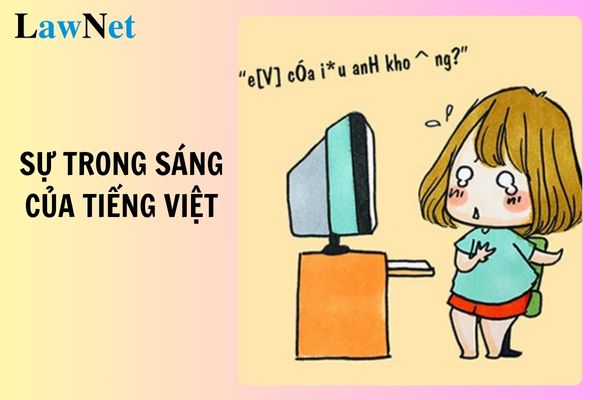What are the 5+ sample argumentative essays on maintaining the purity of Vietnamese? How many Literature lessons per semester will 12th-grade students in Vietnam study?
What are the 5+ sample argumentative essays on maintaining the purity of Vietnamese?
Writing argumentative essays on maintaining the purity of Vietnamese is a topic that 12th-grade students practice writing in the 12th-grade Literature curriculum.
Students and teachers can refer to the following sample argumentative essays on maintaining the purity of Vietnamese:
|
5+ sample argumentative essays on maintaining the purity of Vietnamese Sample 1: Vietnamese Language - National Identity |
*Note: The information is for reference only./.

What are the 5+ sample argumentative essays on maintaining the purity of Vietnamese? How many Literature lessons per semester will 12th-grade students in Vietnam study? (Image from the Internet)
How many Literature lessons per semester will 12th-grade students in Vietnam study?
According to the General Education Program for Literature included in Circular 32/2018/TT-BGDDT, the time allocated for the 12th-grade Literature curriculum is as follows:
The time allocated for the curriculum by grades (in terms of lessons)
| Grade 1 | Grade 2 | Grade 3 | Grade 4 | Grade 5 | Grade 6 | Grade 7 | Grade 8 | Grade 9 | Grade 10 | Grade 11 | Grade 12 |
| 420 | 350 | 245 | 245 | 245 | 140 | 140 | 140 | 140 | 105 | 105 | 105 |
At the upper secondary level, each grade has an additional 35 lessons for elective study topics.
Thus, 12th-grade students will study a total of 105 lessons and 35 elective lessons in Literature, bringing the total to 140 lessons in a year. Each semester, 12th-grade students study approximately 70 Literature lessons.
What are the forms of assessment for 12th-grade students in Literature?
Under Section 7 of the General Education Program for Literature included in Circular 32/2018/TT-BGDDT regarding forms of assessment for 12th-grade students:
- Assessment of the Literature subject is conducted in two ways: regular assessment and periodic assessment.
+ Regular assessment is conducted continuously throughout the teaching process, organized by the subject teacher; assessment forms include teacher assessment of students, peer assessment among students, and self-assessment by students.
For regular assessment, teachers can rely on daily observations and notes about students, whether students answer questions, present test results, write analyses and literary feedback, submit reports, conduct research projects, etc.
+ Periodic assessment is conducted near the end or at the end of a learning period (end of semester, end of academic year) organized by educational institutions to serve the management of teaching activities, ensure educational quality, and develop curriculum and learning materials.
Periodic assessments are usually conducted through essay exam questions and question papers. Exam questions and question papers may require essay writing (one or more questions); may combine multiple-choice questions (objective questions) and essay writing (open questions) to assess comprehension and require writing an essay on a certain topic according to the text style learned in the curriculum.
Oral examinations (to assess speaking and listening) can be used if necessary and possible. In assessing learning results at the end of the academic year or at the end of schooling, it is necessary to innovate assessment methods (question structure, question phrasing, difficulty differentiation, etc.); use and exploit learning materials that meet the requirement of assessing student competence, overcoming the situation where students only memorize lessons or copy available materials; avoid reusing previously studied texts to accurately assess comprehension, analysis, and appreciation of literary works.
Regardless of the assessment form, it must adhere to the principle that students can express and demonstrate their traits, language competencies, literary competence, imaginative thinking, and logical thinking, their own thoughts, and feelings, without borrowing or copying; encouraging essays that have personality and creativity. Students need guidance to clearly understand objectives, methods, and the criteria system used to assess these traits and competencies.

